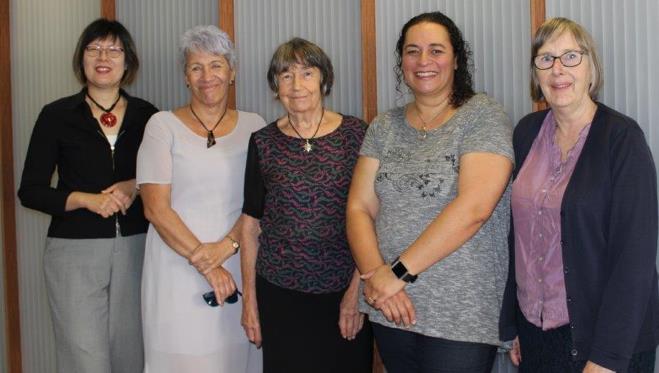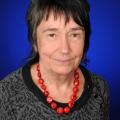You are here
Home › TLRI research › Research completed › ECE sector › Strengthening belonging and identity of refugee and immigrant children through early childhood educationStrengthening belonging and identity of refugee and immigrant children through early childhood education
Project description
The project developed theories and practice strategies on how ECE can enable refugee and immigrant families and children to construct positive outcomes for belonging and participating in Aotearoa New Zealand, while sustaining and contributing important cultural aspects from their home country. Specifically, the project focused on the affordances of children’s drawing, story-telling and play in providing opportunities for supporting belonging; and in art-based and play-based pedagogies in enabling teachers to engage with children, parents and whānau. Our understandings and strategies developed over the course of the study will be published in a resource package for teachers.
Aims
The project addressed three research questions. For children from refugee and immigrant backgrounds:
1. How can the people, places and practices in early childhood settings support a sense of bicultural belonging to Aotearoa New Zealand, and sustain children’s connections to homelands and people.
This question was explored through the following questions and associated sub-questions:
2. How do drawing, story-telling and play provide opportunities for:
i. Children to sustain connections with people and experiences from their home country?
ii. Children to develop new connections in and sense of belonging with Aotearoa New Zealand?
3. How does arts-based and play-based pedagogy enable teachers to engage with children, parents and whānau to:
i. Enable a two-way exchange and mutual learning about culture?
ii. Find out more about the knowledge and skills of children themselves?
From a framework of ecological and sociocultural theory, the project investigated pedagogical practices for constructing pathways to bicultural belonging in Aotearoa New Zealand.
Why is this research important?
In 2016, UNICEF warned of the growing global crisis for refugee and immigrant children and of evidence that circumstances for a significant number are highly disadvantageous. Refugees are from countries where there has been war, ethnic, political or religious persecution, famine and poverty. Recent immigrants may lack social networks and support from family members. This project analyses the pedagogical role of ECE for refugee and immigrant belonging and participation in Aotearoa New Zealand, and the mutual benefits for all ECE participants in learning from each other.
What we did
Two cycles of data collection, theory development and analysis were undertaken in two kindergartens and two education and care centres that included refugee and immigrant children.
Data was gathered through:
- Video recordings of a sample of curriculum events where children are: drawing and talking about experiences and interactions with others; telling about artefacts from home and engaging in subsequent free play; engaging in other curriculum events;
- Focus group interviews and drawings with parents about their experiences related to belonging in their home country and Aotearoa New Zealand;
- Case studies of three children and families in each centre over 12 months to illuminate trajectories of belonging over time.
We used thematic analysis to identify, analyse and report themes within the data linked to each research question. Conversation analysis was used to provide information about where teaching and learning experiences were promoted or hindered, and to detail how children referred to their belonging in everyday conversations.
Our partners:
Crawshaw Kindergarten: Gail Megaffin (head teacher), Joanne Kay and Raewyn Karl (teachers)
Hillcrest Kindergarten: Amanda Cloke (head teacher), Christine McKean, Rajam Walter, and Louise Treweek (teachers)
Iqra Educare: Maria Sammons (supervisor), Sophia Ali, Leena Noorzai and Melanie Glover (teachers)
Pakuranga Baptist Kindergarten: Jacqui Lees (head teacher), Sudha Jacob, Olivia Ng, Gael Astell and Nilma Abeyratne (teachers)
Waikato Kindergarten Association: Anne Thomas, Professional Leader
Contact details
Professor Linda Mitchell
Early Years Research Centre, Faculty of Education, The University of Waikato, Private Bag 3105, Hamilton 3240.
linda.mitchell@waikato.ac.nz
+64 7 856 2889

Some of the TLRI team members:
Dr Elaine Khoo, Dr Lesley Rameka, Professor Linda Mitchell, Raella Kahuroa, Professor Bronwen Cowie
Early Years Research Centre, Faculty of Education, The University of Waikato, Private Bag 3105, Hamilton 3240.
Publications
Lees, J., & Ng, O. (2020). Whenuatanga—Our places in the world. Early Childhood Folio, 24(1), 21-25. https://doi.org/10.18296/ecf.0075
Sammons, M., Ali, S., Noorzai, L., Glover, M., & Khoo, E. (2020). Fostering belonging through cultural connections: Perspectives from parents. Early Childhood Folio, 20(1), 31-36. https://doi.org/10.18296/ecf.0078
Treweek, L., Cloke, A., McKean, C., Walter, R., & Huang, V. (2020). Treasure Boxes: A strategy for encouraging belonging. Early Childhood Folio 20(1), 26-30. https://doi.org/10.18296/ecf.0077
Mitchell, L., & Khoo, E. (2020). Comment. Early Childhood Folio, 24(1), 1-2. https://doi-org.ezproxy.waikato.ac.nz/10.18296/ecf.0072

